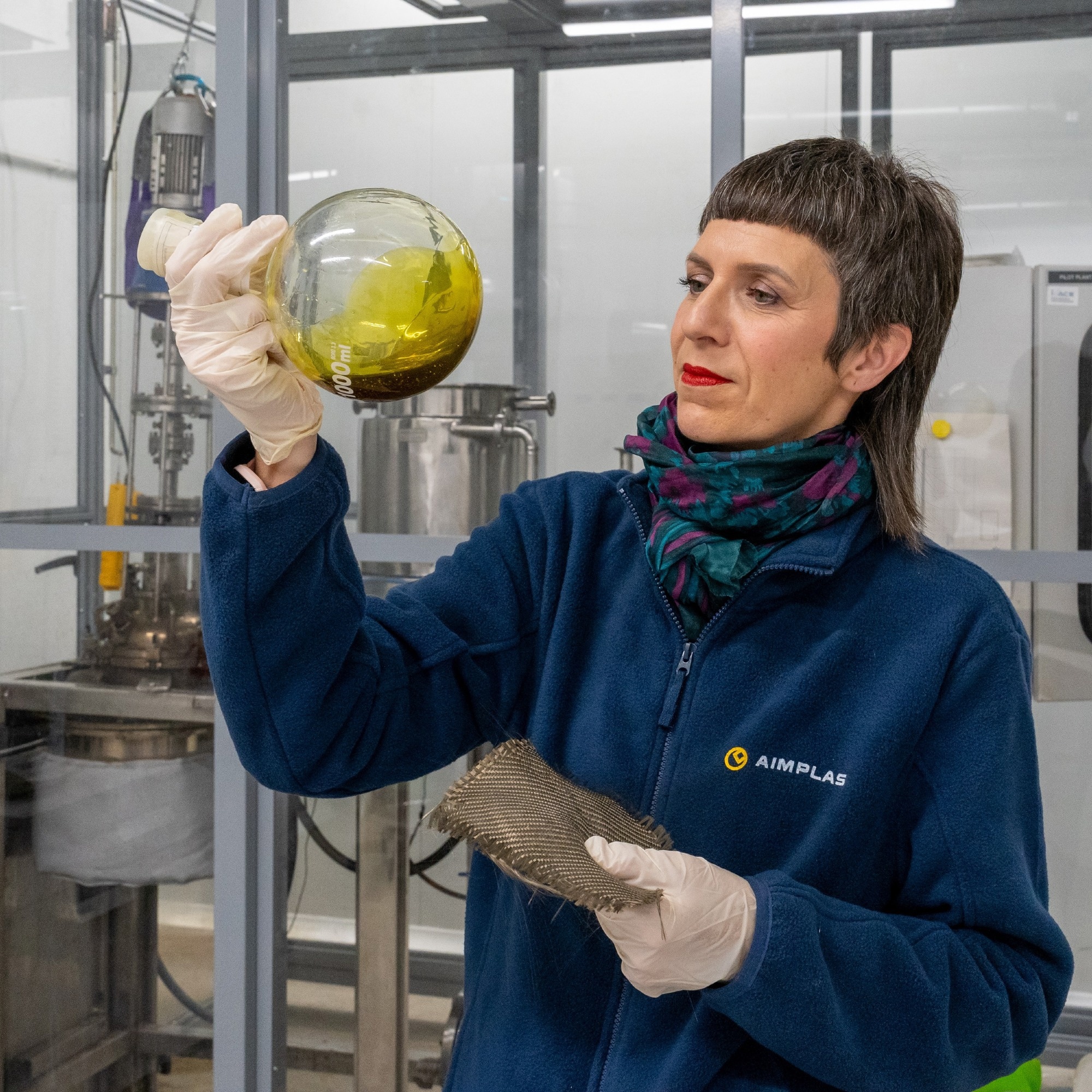The aviation industry is increasingly using biocomposite materials in its components to mitigate their environmental impact. Biocomposites use natural fibres for reinforcement and resins from renewable sources. However, the novelty and heterogeneous nature of these thermoset materials and the fact that they lack carbon fibres, which have a high market value, make it difficult to find an efficient management solution when these materials become waste at the end of their useful life.

Image Credit: AIMPLAS
AIMPLAS, the Plastics Technology Centre, and the Dutch research centre TNO have completed the ELIOT Project, which involved carrying out an in-depth review of current recycling technologies for the composites and biocomposites used in the aeronautics sector in order to analyse the best alternatives on a pilot plant scale that are also technically and financially feasible. As a result of the study, solvolysis was found to be the best method of the 12 technologies analysed for recycling six different biocomposites.
This study helps promote cost-effective recycling technologies that enable the aeronautics industry to guarantee the sustainability of its components in the search for new solutions aligned with the circular economy.
The results show that pyrolysis emits 17% more carbon dioxide and consumes twice as much heat as solvolysis, which entails additional associated costs. Solvolysis uses solvents as a substitute for heat, but these solvents are recovered with great efficiency and reused in the process. The study has also shown that solvolysis works even better on large biocomposites.
For both pyrolysis and solvolysis, additional purification steps are required to be able to use the pyrolysis liquid and the distilled product, respectively. These estimates were made based on a processing plant with a capacity of 10 kilotonnes of biocomposites per year.
Other technologies analysed in the study included mechanical recycling, dissolution, enzymatic degradation, gasification and composting.
The ELIOT Project received funding from the European Union’s Horizon 2020 research and innovation programme within the framework of the Clean Sky Joint Technology Initiative under grant agreement number 886416.